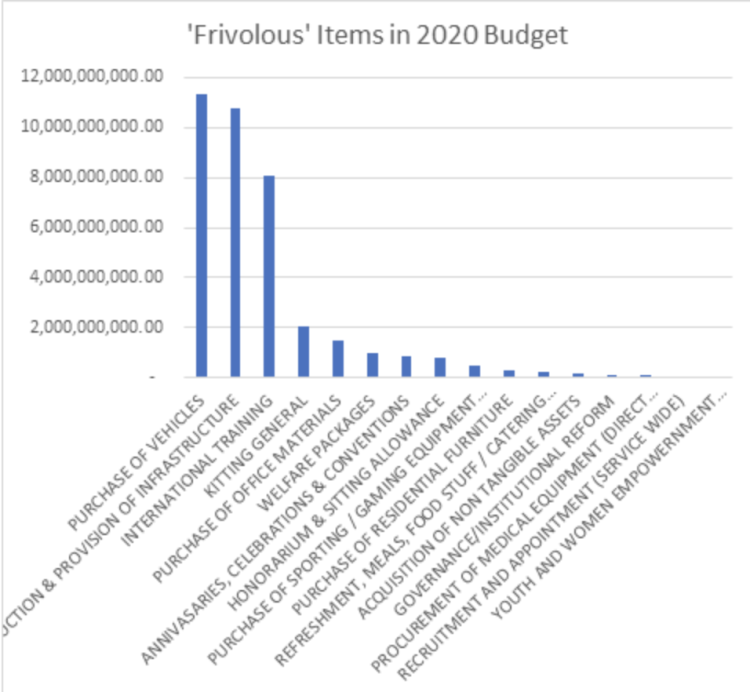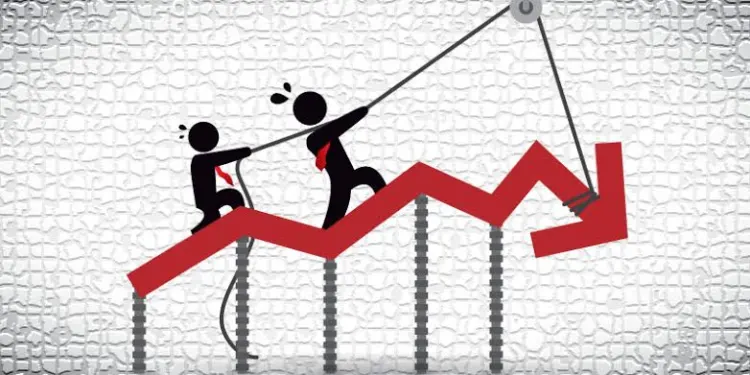Nigeria’s fiscals for 2020 has been confronted with a plethora of challenges from the onset of the budget cycle. As at when the 2020 appropriation bill was passed, the country had a budget deficit of ₦2.175 trillion. Fluctuations and crashes in the price of Brent crude together with the COVID 19 pandemic plunged the country into another financial crisis. To absorb the effect of the various financial assaults on the country, the 2020 budget was downsized by ₦1.5 trillion in March 2020.
While the ₦1.5 trillion slash in the budget appears to be a modest economic approach to the financial distress, the Nigerian government has not provided the details on the items of public expenditure that will be affected by the downsized budget. By implication, there is a suggestion that many items of public spending in the country may have frivolous nature and abrupt removal of significant percentages of the budget may barely have any implication on the country’s development prospects as well as on the budget performance. This alone puts a believable perspective to the series of accusations on the gross misappropriation of public funds by successive governments in the country.
Besides the accountability question on the downsized budget, a quick rundown on the 2020 appropriation bill shows that the country could have saved significantly more with a less perky budget. In fact, the lopsided nature of budget items in different MDAs raises further questions on prudence, management and accountability. For instance, while road construction should be the exclusive reserve of the Federal Ministry of Works, that item of expenditure appeared in the budget of at least 10 MDAs in a DATAPHYTE sampling of 284 items of the 2020 appropriation bill.
Filtered down, the DATAPHYTE analysis shows that at least ₦37.7bn could have been saved from the 284 items that appear to be of frivolous nature, lopsided or insensitive due to the global COVID 19 situation. Over 89 percent of this lumpsum has been allocated to the first five items alone. Broken down, a whooping ₦11.3bn is to be spent on the purchase of vehicles.
Similarly, about ₦10.8bn was budgeted to construction and infrastructure provision in MDAs that may not have the mandate to implement such projects. Over ₦8bn was budgeted for international training and transport. In the Ministry of Defense, not less than ₦2bn would be spent on kitting generals! In addition, about ₦1.5bn was budgeted for the purchase of office materials.

Outside the first five items is another long list of irritable items especially in a distressed economy. For instance, how is spending almost ₦1bn on welfare packages justifiable in an economy that is struggling to pay salaries? One would also imagine the extent of national frivolity with a budget of over ₦880 million on anniversaries, celebrations and conventions! With a budget of almost have a billion naira on sport-related activities, perhaps the Nigerian civil service is the grandest sports circuit in the world! Sadly, with this analysis of merely a few MDAs, one can imagine the scale of wastefulness in the country.
Perhaps the Nigerian government needs to be reminded that it owes the people an obligation of prudence and purposefulness in its financial management. The economy may fair better with frugal choices over frivolous items stuffed into the budget. Spending such as the purchase of vehicles, spending on celebrations, international travels, and so on could be cut down within reasonable limits.
A deep look at the budget by an expert team can also help repurpose the public spending within the country’s current economic realities. Maybe a great starting point is to disclose the items of expenditure that are affected by the downsizing of the budget.



